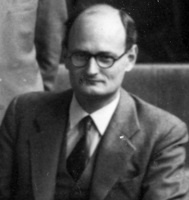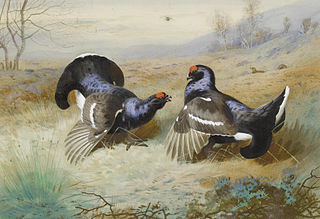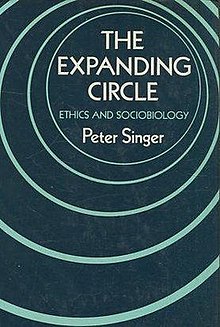
Altruism is the concern for the well-being of others, independently of personal benefit or reciprocity.

In moral philosophy, consequentialism is a class of normative, teleological ethical theories that holds that the consequences of one's conduct are the ultimate basis for judgement about the rightness or wrongness of that conduct. Thus, from a consequentialist standpoint, a morally right act is one that will produce a good outcome. Consequentialism, along with eudaimonism, falls under the broader category of teleological ethics, a group of views which claim that the moral value of any act consists in its tendency to produce things of intrinsic value. Consequentialists hold in general that an act is right if and only if the act will produce, will probably produce, or is intended to produce, a greater balance of good over evil than any available alternative. Different consequentialist theories differ in how they define moral goods, with chief candidates including pleasure, the absence of pain, the satisfaction of one's preferences, and broader notions of the "general good".
Psychological egoism is the view that humans are always motivated by self-interest and selfishness, even in what seem to be acts of altruism. It claims that, when people choose to help others, they do so ultimately because of the personal benefits that they themselves expect to obtain, directly or indirectly, from doing so.

Peter Albert David Singer is an Australian moral philosopher who is Emeritus Ira W. DeCamp Professor of Bioethics at Princeton University. Singer's work specialises in applied ethics, approaching the subject from a secular, utilitarian perspective. He wrote the book Animal Liberation (1975), in which he argues for vegetarianism, and the essay "Famine, Affluence, and Morality", which argues the moral imperative of donating to help the poor around the world. For most of his career, he was a preference utilitarian. He revealed in The Point of View of the Universe (2014), coauthored with Katarzyna de Lazari-Radek, that he had become a hedonistic utilitarian.
Sociobiology is a field of biology that aims to explain social behavior in terms of evolution. It draws from disciplines including psychology, ethology, anthropology, evolution, zoology, archaeology, and population genetics. Within the study of human societies, sociobiology is closely allied to evolutionary anthropology, human behavioral ecology, evolutionary psychology, and sociology.
In ethical philosophy, utilitarianism is a family of normative ethical theories that prescribe actions that maximize happiness and well-being for the affected individuals. In other words, utilitarian ideas encourage actions that lead to the greatest good for the greatest number. Although different varieties of utilitarianism admit different characterizations, the basic idea behind all of them is, in some sense, to maximize utility, which is often defined in terms of well-being or related concepts. For instance, Jeremy Bentham, the founder of utilitarianism, described utility as the capacity of actions or objects to produce benefits, such as pleasure, happiness, and good, or to prevent harm, such as pain and unhappiness, to those affected.

Thomas Nagel is an American philosopher. He is the University Professor of Philosophy and Law Emeritus at New York University, where he taught from 1980 until his retirement in 2016. His main areas of philosophical interest are political philosophy, ethics and philosophy of mind.

John Leslie Mackie was an Australian philosopher. He made significant contributions to ethics, the philosophy of religion, metaphysics, and the philosophy of language. Mackie had influential views on metaethics, including his defence of moral scepticism and his sophisticated defence of atheism. He wrote six books. His most widely known, Ethics: Inventing Right and Wrong (1977), opens by boldly stating, "There are no objective values." It goes on to argue that because of this, ethics must be invented rather than discovered.

Richard Mervyn Hare, usually cited as R. M. Hare, was an English moral philosopher who held the post of White's Professor of Moral Philosophy at the University of Oxford from 1966 until 1983. He subsequently taught for a number of years at the University of Florida. His meta-ethical theories were influential during the second half of the twentieth century.

Group selection is a proposed mechanism of evolution in which natural selection acts at the level of the group, instead of at the level of the individual or gene.

"Famine, Affluence, and Morality" is an essay written by Peter Singer in 1971 and published in Philosophy & Public Affairs in 1972. It argues that affluent persons are morally obligated to donate far more resources to humanitarian causes than is considered normal in Western cultures. The essay was inspired by the starvation of Bangladesh Liberation War refugees, and uses their situation as an example, although Singer's argument is general in scope and not limited to the example of Bangladesh. The essay is anthologized widely as an example of Western ethical thinking.

Sociobiology: The New Synthesis is a book by the biologist E. O. Wilson. It helped start the sociobiology debate, one of the great scientific controversies in biology of the 20th century and part of the wider debate about evolutionary psychology and the modern synthesis of evolutionary biology. Wilson popularized the term "sociobiology" as an attempt to explain the evolutionary mechanics behind social behaviour such as altruism, aggression, and the nurturing of the young. It formed a position within the long-running nature versus nurture debate. The fundamental principle guiding sociobiology is that an organism's evolutionary success is measured by the extent to which its genes are represented in the next generation.
Evolutionary ethics is a field of inquiry that explores how evolutionary theory might bear on our understanding of ethics or morality. The range of issues investigated by evolutionary ethics is quite broad. Supporters of evolutionary ethics have argued that it has important implications in the fields of descriptive ethics, normative ethics, and metaethics.
Effective altruism (EA) is a 21st-century philosophical and social movement that advocates impartially calculating benefits and prioritizing causes to provide the greatest good. It is motivated by "using evidence and reason to figure out how to benefit others as much as possible, and taking action on that basis". People who pursue the goals of effective altruism, who are sometimes called effective altruists, follow a variety of approaches proposed by the movement, such as donating to selected charities and choosing careers with the aim of maximizing positive impact. The movement has achieved significant popularity outside of academia, spurring the creation of university-based institutes, research centers, advisory organizations and charities, which, collectively, have donated several hundreds of millions of dollars.
Earning to give involves deliberately pursuing a high-earning career for the purpose of donating a significant portion of earned income, typically because of a desire to do effective altruism. Advocates of earning to give contend that maximizing the amount one can donate to charity is an important consideration for individuals when deciding what career to pursue.

The End of Animal Farming: How Scientists, Entrepreneurs, and Activists Are Building an Animal-Free Food System is a 2018 book by Jacy Reese that argues animal farming will end by the year 2100 based on effective altruism reasoning and social movement strategy.

Against Empathy: The Case for Rational Compassion is a 2016 book written by psychologist Paul Bloom. The book draws on the distinctions between empathy, compassion, and moral decision making. Bloom argues that empathy is not the solution to problems that divide people and is a poor guide for decision making. However, he is not completely against empathy; he believes that empathy can motivate kindness to make the world a better place.

Insects and human ethical obligations towards them have been discussed by a number of writers and figures throughout history, many of whom, arguing from a variety of different perspectives, have contended that there exists a moral obligation towards not harming or killing insects. According to generally accepted definitions in animal welfare and agricultural ethics, however, it is argued that individual insects do not have a "right to life".
Moral circle expansion is an increase over time in the number and type of entities given moral consideration. The general idea of moral inclusion was discussed by ancient philosophers and since the 19th century has inspired social movements related to human rights and animal rights. Especially in relation to animal rights, the philosopher Peter Singer has written about the subject since the 1970s, and since 2017 so has the think tank Sentience Institute, part of the 21st-century effective altruism movement. There is significant debate on whether humanity actually has an expanding moral circle, considering topics such as the lack of a uniform border of growing moral consideration and the disconnect between people's moral attitudes and their behavior. Research into the phenomenon is ongoing.

In the philosophy of effective altruism, an altruistic act such as charitable giving is considered more effective, or cost-effective, if it uses a set of resources to do more good per unit of resource than other options, with the goal of trying to do the most good. In a book written by effective altruism scholars Stefan Schubert and Lucius Caviola, the effectiveness of helping is defined by how many lives you save or how much good you otherwise do with a given amount of resources.













